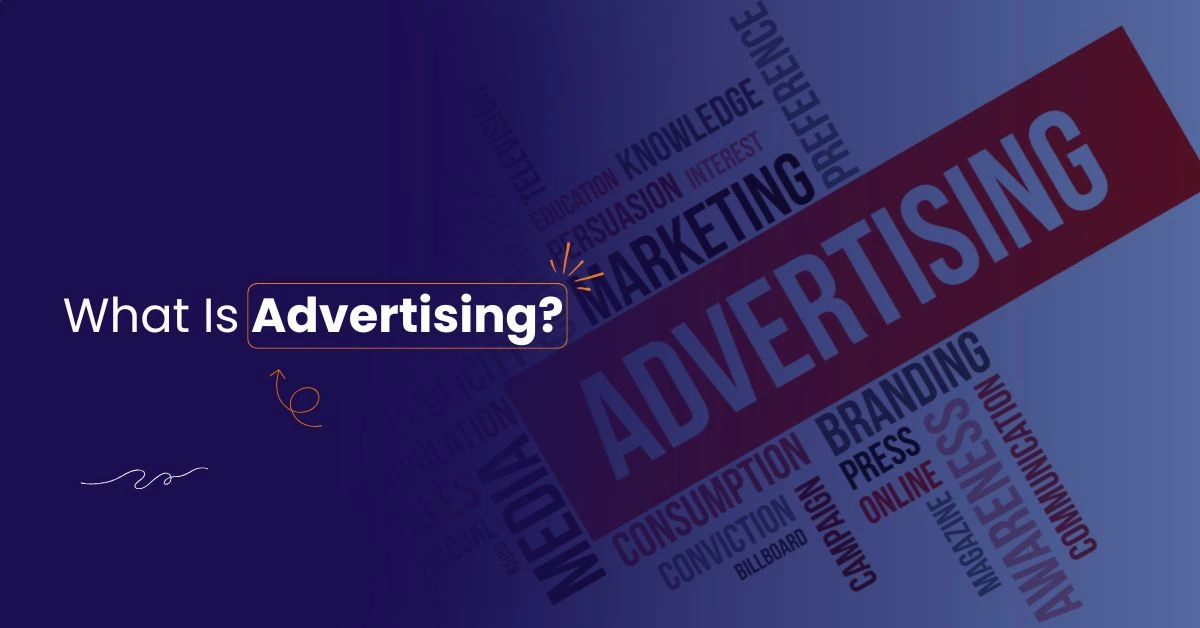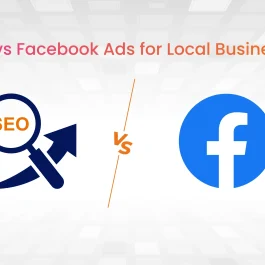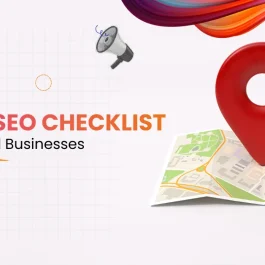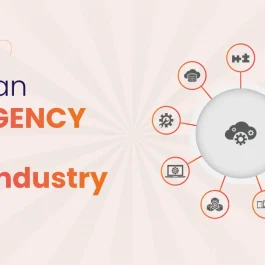4 min read
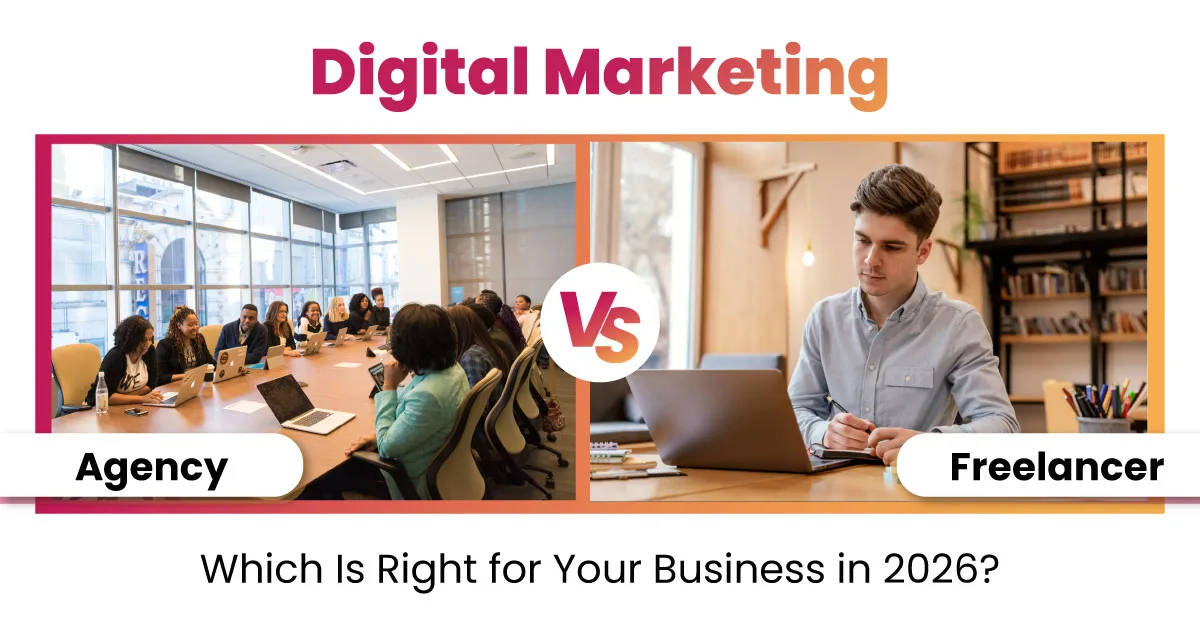
Digital marketing has reached a defining moment. Global advertising spend has crossed the trillion-dollar mark, and most of that investment now goes into digital channels. Search engines, social platforms, paid ads, content, and email drive how brands grow today.
For a business owner, this growth creates pressure. There are more platforms to manage. There is more data to review. Competition for the same target audience is higher than ever.
This is why choosing between a digital marketing agency vs. freelancer is a serious decision in 2026. The choice affects how fast campaigns launch, how well teams execute, how money is spent, and how sustainable growth becomes.
This guide explains the key differences clearly. It helps you decide which option fits your business needs, budget, and long-term goals.
At Varun Digital Media, we help businesses scale with structured, performance-driven digital marketing—not scattered execution.
Table of Contents
How Digital Marketing Really Works in 2026
Digital marketing is no longer about just being visible online. Today, success depends on how well multiple channels work together.
Modern digital marketing includes search engine optimization, social media marketing, paid advertising, content marketing, email marketing, conversion tracking, and analytics. Each channel supports the others. When one breaks, results drop.
Marketing efforts today depend on:
- Clear project management to align teams, timelines, priorities, and measurable business goals
- Advanced tools and premium marketing tools for automation, analytics, optimization, and performance tracking
- Structured processes that reduce errors, improve quality, and support scalable execution
- Fast testing and learning cycles to adapt quickly, improve campaigns, and maximize marketing results
These factors matter whether you hire a marketing agency or work with independent freelancers. Without structure and clarity, even strong ideas fail to deliver.
Who Should Choose a Digital Marketing Agency in 2026?
A digital marketing agency is the right choice if your business depends on predictable leads, scalable growth, and measurable ROI.
You should work with an agency if:
• You need SEO, paid ads, content, and analytics working together
• You want accountability, reporting, and clear ownership
• You aim for long-term growth instead of short-term execution
• You cannot afford delays, missed follow-ups, or fragmented strategy
This is why growth-focused businesses move from freelancers to agencies as they scale.
How Freelancers and Independent Professionals Operate
Marketing freelancers usually work as independent professionals or independent contractors. Most freelancers focus on specific skills or a narrow niche. They often deliver strong results within a defined scope.
Common examples include
- SEO agencies run by solo consultants managing audits, optimization, reporting, and communication
- Content writing specialists creating blogs, landing pages, and conversion-focused website copy
- Google Ads experts handling campaign setup, testing, bidding, and optimization
- Social media managers acting as virtual assistants, scheduling posts, replying to messages, and tracking engagement
Freelancers work best when the scope is clear. They offer direct communication, personal attention, and cost-effective pricing for smaller projects or short-term tasks.
However, most freelancers manage multiple projects at once. Limited capacity and limited access to premium marketing tools can slow delivery as the workload grows.
Hidden Risks of Relying Only on Freelancers
While freelancers offer flexibility, businesses often face hidden risks as marketing complexity grows.
Common risks include:
• Inconsistent execution across channels
• Limited accountability when results drop
• Tool limitations affecting insights and optimization
• Increased coordination burden on business owners
• Delays caused by capacity constraints
These risks slow growth and increase long-term costs.
Cost Comparison: Agency vs Freelancers in 2026
Freelancers often appear cost-effective at first. Their payment schedules are flexible and suit limited budgets.
But costs rise when:
- You hire multiple freelancers and spend time coordinating communication and timelines
- You need multiple specialists across SEO, ads, content, and design
- Quality control becomes inconsistent due to different standards and accountability gaps
A digital marketing agency costs more upfront. However, it delivers cost savings at scale. One agreement covers strategy, execution, reporting, and optimization.
For small projects, freelancers make sense. For online marketing tied to business success, agencies usually deliver stronger returns.
The real cost difference is not hourly rates.
It is the cost of missed opportunities, delayed execution, and unmanaged growth.
When a Digital Marketing Agency Is the Right Choice
Choose a marketing agency when:
- You want long-term growth supported by scalable systems and performance tracking
- You need a broad range of services across SEO, paid ads, content, design, and analytics
- Your business goals require consistent execution with clear ownership and timelines
- You value success stories and client reviews that prove real-world results
- You need structured processes and accountability to maintain quality and momentum
Agencies provide stability and repeatable systems. This is why many brands partner with teams like Varun Digital Media, where the focus stays on growth, not just output volume.
When Freelancers Make More Sense
Freelancers are ideal when:
- The work involves specific skills without cross-channel coordination
- You have smaller projects with clear scope and defined outcomes
- You want fast delivery without long approval cycles
- Your budget is limited, and flexibility matters
- You need personal attention through direct communication
Independent freelancers work well for audits, short campaigns, or one-time builds.
The Hybrid Model: A Common Choice in 2026
Many businesses now use a hybrid model.
They rely on:
- A marketing agency for strategy and core execution
- Freelancers for overflow work or niche skills
This approach balances speed, cost savings, and quality control. It also allows businesses to scale without over-committing resources.
Digital Marketing Agency vs Freelancer: Final Decision Framework
Ask yourself:
- Do I need a full team or an independent professional?
- Are my marketing needs short-term or long-term?
- Can I manage multiple freelancers myself?
- Do I need strategy, execution, or both?
Your answers will guide the right decision.
Final Thoughts: Making the Right Choice in 2026
There is no single winner in the digital marketing agency vs freelancer debate. The right option depends on your business needs and growth stage.
Agencies bring structure and long-term stability.
Freelancers offer speed and flexibility.
Hybrid models combine both strengths.
In 2026, business success comes from clarity.
Clear goals. Clear roles. Clear ownership.
Still Deciding on Your Marketing Partner?
Get a clear, expert-backed recommendation based on your goals, budget, and growth stage.
Frequently Asked Questions
1. Is a digital marketing agency better than a freelancer in 2026?
A digital marketing agency works better for steady growth across multiple channels. Agencies use structured systems, full teams, and regular reporting. This helps businesses scale without managing several freelancers.
2. Are freelancers still cost-effective?
Freelancers are cost-effective for small or short-term work. Costs increase when many freelancers are hired and require heavy coordination.
3. Can businesses work with both?
Yes. Many businesses use agencies for strategy and freelancers for specific tasks or overflow work.
4. How should a business owner choose?
Consider budget, scope, deadlines, and internal capacity. Agencies suit ongoing work. Freelancers suit focused tasks.
5. Do agencies provide better accountability?
Yes. Agencies offer project managers, workflows, and reporting. This reduces risk and improves consistency.
Published: August 27th, 2025
Tags:
- agency pricing vs freelancer pricing
- agency vs freelancer pros and cons
- digital marketing agency vs freelancer
- digital marketing cost comparison
- digital marketing trends 2025
- freelance digital marketer
- freelancer vs agency for small business
- hiring a marketing agency
- in-house vs agency vs freelancer
- marketing strategy 2025
